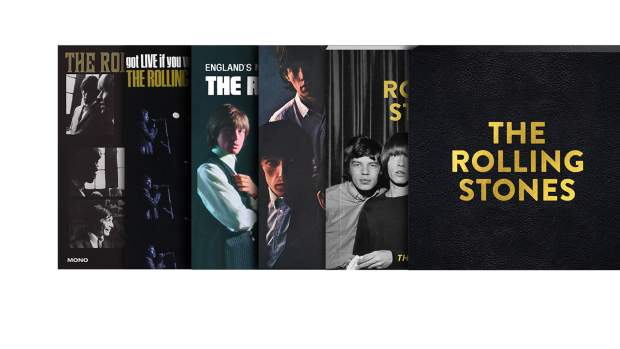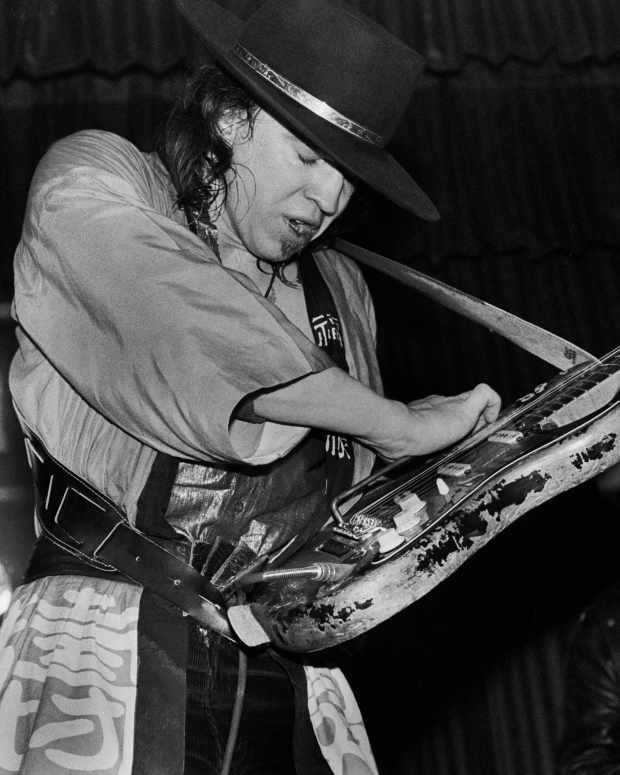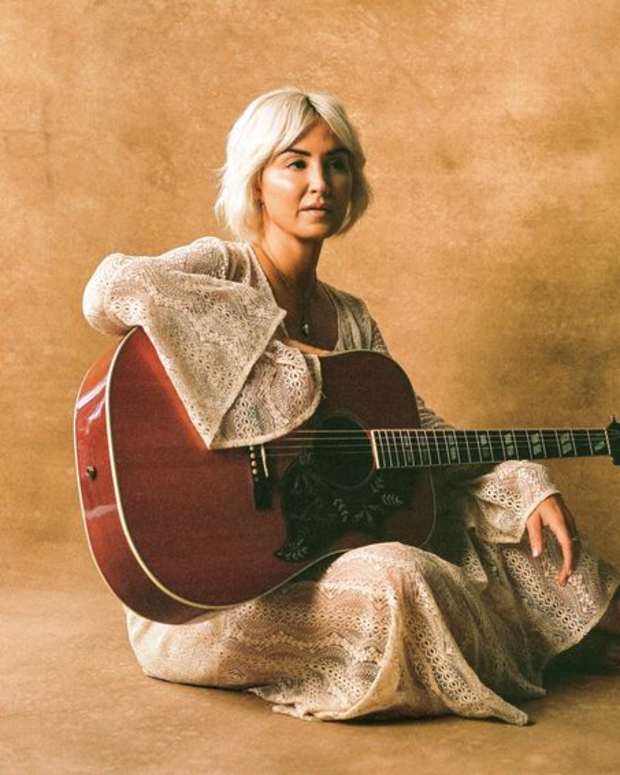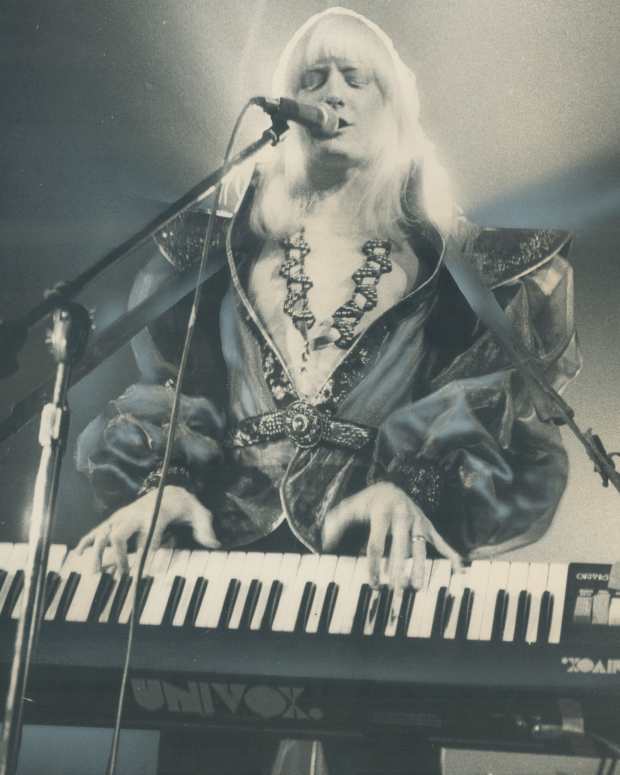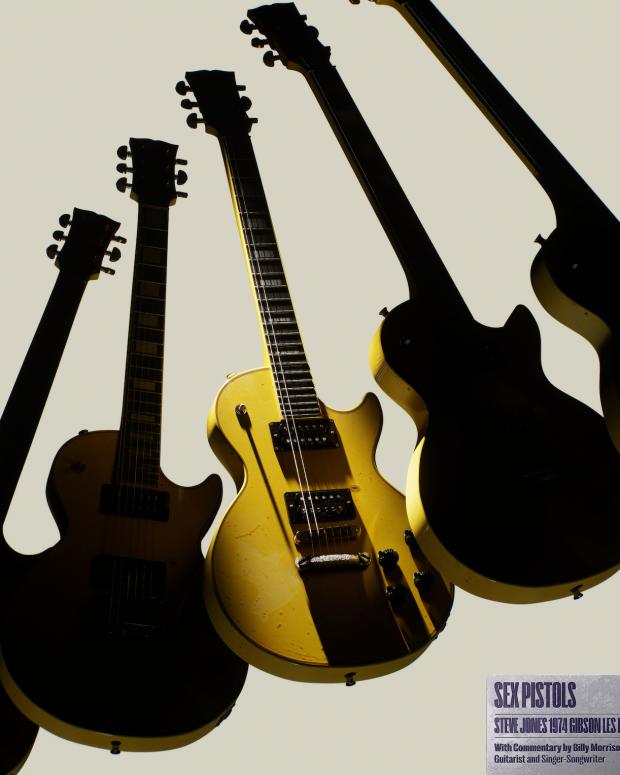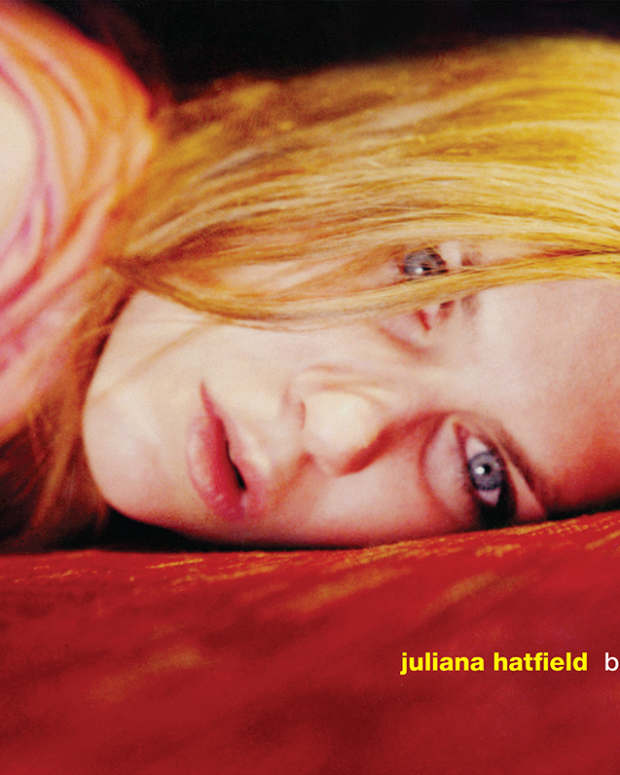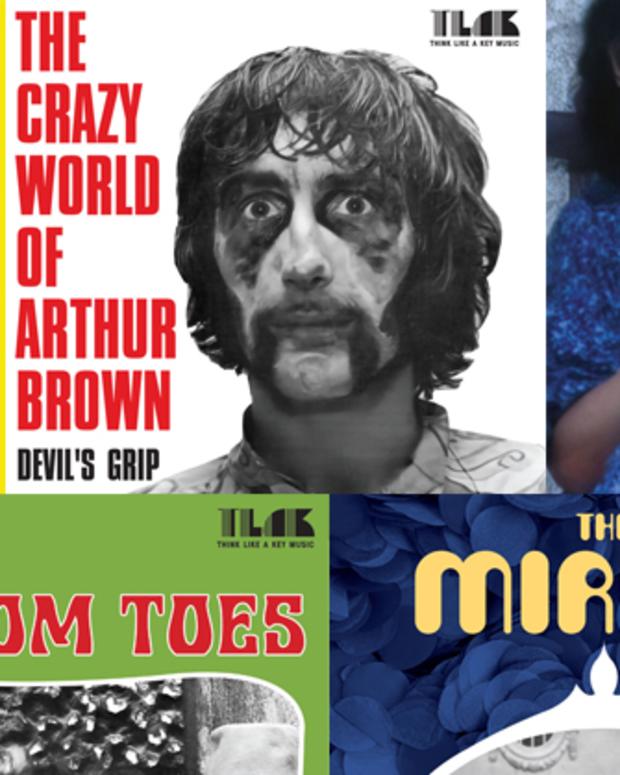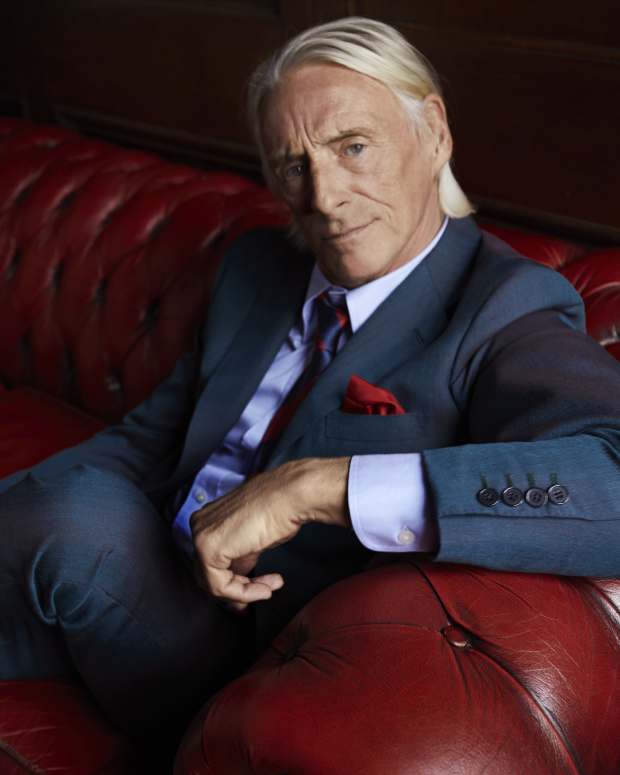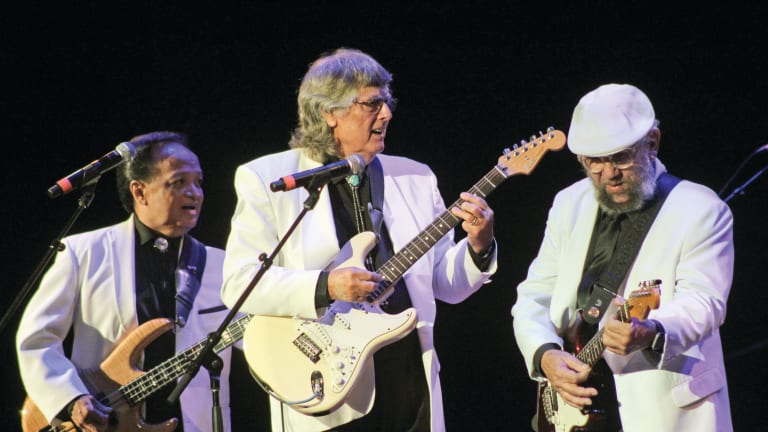
Cherishing the music of The Association
By Daniel Coston
The vocals. The harmonies. The songs. All of these things enter the equation when discussing The Association. Formed in Los Angeles in 1965, the band elevated group dynamics with all six, and sometimes seven members, all taking turns leading the band, while retaining their rich harmony vocals. With five Top 10 singles, seven Grammy nominations and millions of records sold, the band remains one of the most diverse and cherished sunshine pop bands of the 1960s.
After many years under the leadership of Russ Giguere and Larry Ramos (who passed away in 2014), the band is now led onstage by two other original members, Jules Alexander and Jim Yester, with Giguere now managing the group. Alexander and Yester have not only returned the band to its group dynamics, but also now plan their first new album since 1972, a welcome return at a time when the world could use more sunshine. Alexander, Yester and Giguere called in to talk to Goldmine.
GOLDMINE: Let’s start with the big news. You’re planning on a new Association album.
JULES ALEXANDER: We got the word to go ahead a month and a half ago, so we started grabbing material, and conceiving what we want to do on it. The concept is to do all new material, or at least all new to us.
JIM YESTER: It’s our first one in a long while, and we’re really looking forward to it. We got some great stuff that we’ve been saving up, and now is the time to let them loose. The whole industry has changed. Everything has pretty much gone to streaming. They still sell stuff in the stores, but really, the huge part of it is streaming. But it opens the door for us, because we can do our own thing. So we’re going for it.
GM: Will you be sourcing songs from within the band?
JA: From everybody. I went to Ruthann Friedman, who wrote “Windy.” I said, “Do you have stuff?” and she said, “Yeah!” I went to Richard Addrisi, who did “Never My Love” with his departed brother. We’re going to go to those wonderful sources of music that we’ve already been to and see what we’ve got. And then we’ve got our songs. A bunch of us are writers. It should be a really fun project. We’ll definitely have our stuff on there. (Original member) Terry (Kirkman) is going to be involved in this new album. When we were first starting this project, I said, “Terry, why don’t you come hang out with us with this album?” So he’s going to be in on the production end of it. I might twist has arm and make him sing a part or two.
RUSS GIGUERE: If we heard a good tune, we would never turn it down. We would listen to maybe 50 tunes at a time. Usually, the song would last a few bars, and one of the guys would go, “Next!” So obviously, when a good tune hit, when four or five guys would go, “All right!” then we would do that song.
GM: I’ve heard that The Association did some recording in 1980, shortly after the HBO reunion special, Then and Now.
RG: Yes, the guys refer to that as “The Secret Album.” We did about 10 to 12 songs, and we’re still looking for half of the songs. I’ve got the rest. It’s just ass-kicking stuff, and really different. I don’t know what we’ll do with those songs, at this point. We did this one tune called “Persian Gulf,” that’s all a cappella, except for a part that has organ in it, and then it goes back to a cappella. I have that. It’s a great piece.
GM: One of the most amazing things about the band is that despite having seven key people be in and out of the band at different times, to this day, it still sounds like The Association.
JA: The heart of the band is still there. It’s still happening. The spirit has not left us.
JY: We’re about harmonies, that’s what we do. Terry had an interesting idea. He said, “Our strength is six guys up there singing their ass off.” I remember that they had only been together for two weeks, and they brought me in to replace somebody. And the first time they sang for me, it just knocked me down.
GM: Talk about the current lineup.
JA: It’s myself and Jim Yester, who’s been in since word one. We’re the two original guys, then the second original guys, (laughs) who’s been in the band for 45 years. That’s Del Ramos, Larry’s brother. Larry Ramos was with us for many years, until he passed away (in 2014). Bruce Pictor, who’s a killer drummer. Our keyboard guy is Jordan Cole, who is the son of our (original) bass player, Brian Cole. He’s been with us 25, 30 years. Our newest guy is Paul Holland, he’s only been with us for 20 years.
JY: We were a concert act, before we ever did any recording. We had the “Association Hardcore News,” the “Association Theater of The Absurd.” Great skits. If somebody broke a string onstage, bang, we instantly went into a bit. So while the string was being repaired, the audience was being entertained. We never wanted to be a standup jukebox. That’s the way we’ve always been. We tell stories, and people always love the stories.
RG: The band is still going. They sound wonderful. I always go see them, when they play near me. A couple of years ago, they added “Requiem for the Masses” back in, which just kicks ass. They do it so well. To this day, Jules is still one of the best instrumental guys I’ve ever met. He’s the ultimate combination of science and art. He was the science guy in the group. We’d be driving along, and we’d see a geological formation, and he would always know what kind of formation it was. Always been like that. The thing I love about Jim, is that in his 20s, he was a great singer. Now he’s in his 80s, and he’s still a great singer. It’s just mind-blowing. No one in their 80s is still a great singer. But with Jim, that’s just the way it happens.
GM: Did the band collectively come up with the sketch about the Association Machine, which you used as an introduction onstage, and on TV?
JY: I think Brian (Cole) came up with that, but we all added our two cents in. If somebody comes to us with something that’s structured, everybody has input. But I think that was pretty much Brian’s, and he made up all of the names for everybody. Brian was great with that kind of stuff. His background was theater. He could rattle off these Shakespeare soliloquies. You asked him a question about Shakespeare, and he could tell you what it was from, and what page it was on.
GM: What are your memories of the Monterey Pop Festival?
JY: It was great fun, even though some of the people involved with it didn’t think that we belonged there, with the suits and ties. D.A. Pennebaker, who did the Monterey Pop movie, didn’t even shoot our first song, “Enter the Young.” But then he caught the machine bit, so that was good. It was great hanging out with everybody backstage. What was neat about being the first act on, was then we had front row seats for the rest of the three days. That was incredible. Janis (Joplin) blew me away. I was intimidated. We’re in the front row to see Hendrix put the guitar on fire. I was blown away by Moby Grape. They were our favorite act of the weekend.
RG: For us, it was heaven. We were on the road so much back then. We never got to stay all three days and nights, for anything. It was great fun.
GM: Talk about (producers) Curt Boettcher and Bones Howe. Each had their own individual style.
JY: But with each of those, we were their first production situation. Curt, we knew through a group he had called the Goldebriars, who came and played at the Pasadena Ice House. We knew him, and we all hung out together. Curt had been to 40 or 50 of our shows and knew our material really well. Bones had engineered a ton of people, but he had never produced anybody. Bones was great to work with. He’d be in the booth, and we’d be recording something, and he’s constantly on the phone. And he’d say, “Ah, do it again.” We would tease him about that. Bones always had great ideas, and what was neat for us, working with The Wrecking Crew was freaking phenomenal. What an incredible bunch of guys, and monster musicians. And no egos at all. You could suggest anything, and “Yeah, that’s it! That’s it!”
D.A. Pennebaker, who did the Monterey Pop movie, didn’t even shoot our first song, “Enter the Young.” — Jim Yester
GM: Were you there for the sessions with The Wrecking Crew?
JY: Oh, yeah. We may have missed one or two because we were on the road, but we were there the whole time. Just watching them with amazement and having a great time. I still have a great relationship with Bones. I think what killed our relationship was that he had Jimmy Webb write something for us. Jimmy came in with a 24-minute cantata. We were in the middle of the (1968) Birthday album, and we had six songs in the can already. We had been in the studio that day for eight or 10 hours, banging our heads against the wall over some vocal arrangement, and Bones said, “Hey guys, take a break. Jimmy’s here, he’s going to play something for you.” He comes in with this 24-minute cantata, with five movements, and each movement is a song. “MacArthur Park” was one of the movements. And the deal was, take all 24 minutes, or nothing. So we had a two-hour, knock-down, drag-out meeting, and we wound up turning it down. And I think that was the end of our relationship with Bones. Obviously, Bones would have had part of the publishing. It was a shame that it happened.
GM: One of the things that leapt up in Russ’ book (Along Comes The Association: Beyond Folk Rock and Three-Piece Suits) was that three members of the band carried guns on the road.
JA: Luckily, nobody ever used one, but we were challenged a number of times. It was dangerous back then. People say how bad it is now. You should have been there!
RG: Brian carried a .45, Jules carried a snubnose .38 and I carried a .32 automatic. We never talked about this with the guys. Only the three of us knew. It was only for five or six months, and we stopped. But it was a scary time. We never flashed them, no machoism involved. It was just business.
GM: Russ, what surprised you in looking back over your history, and the band’s history, for your book?
RG: We never discussed our work ethic, because everyone had it. Everyone just worked their asses off. Everyone put their nose to the grindstone, and did what they needed to do. I didn’t realize that until after I left the group in 1970. A year later, I started to put my own band together, and it wasn’t until then that I realized how hard The Association worked.
GM: To this day, the music of The Association is hard to define. It seems to reflect all of the band’s ideas and influences.
RG: People would ask us, “What kind of music do you do?” To be honest, I never called it anything. Each song was a piece of art, and you did it the best way you could. We did our art, and we did it all. My two favorites are “Along Comes Mary” and “Everything That Touches You.” I love “Cherish,” but it was so hard to sing. It’s not a tune that you can just stand up and sing it. It was literally at the top and bottom of my range, and you really have to think about it. The reaction to “Cherish” was always tremendous, even before we recorded it as a single. We would do the song, we’d finish it, and the audience would sit there, stunned. Then, they would applaud.
JA: I have no favorites. They’re all different works. They were all so different. Every production is a whole different world. There are good things, bad things about each one of them. I sure learned a lot.




